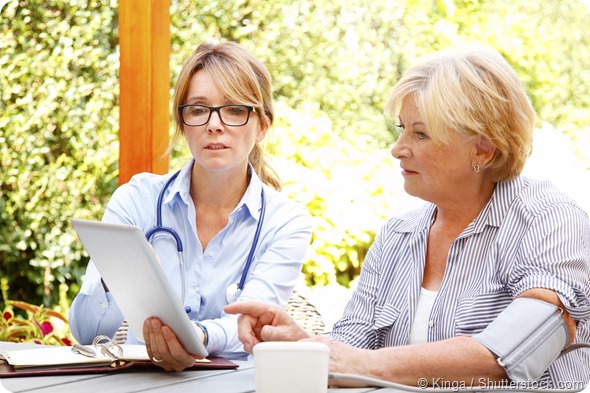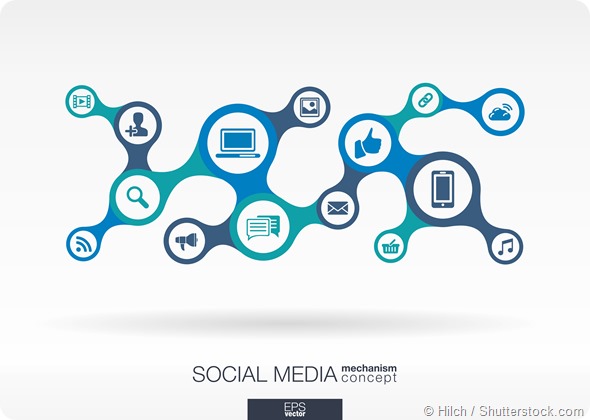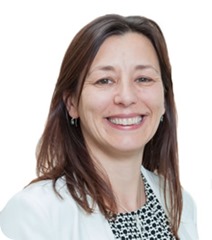In England alone the NHS sees 1 million patients every 36 hours and there are 3 million volunteers across health and social care many of whom are motivated by their personal experience of healthcare services.
Each person is so much more than their health condition/s. They come with a unique context, experiences, skills, talents and ideas. They also have valuable insight into living with conditions and experience of care which could contribute to improving lives and services.
These resources are important in terms of self-management and in contributing to the wider health care system as an active citizen.
Yet the traditional paternalistic relationship between patients and healthcare professionals, citizens and systems disengages and disempowers people locking up the most valuable resource we have.
How important is the co-creation of digital health with patients?
There are two key reasons why co-creation with patients is important in digital health;
Firstly it helps to maximize the potential of the product to achieve the desired outcomes, ensure that it meets the need in the most efficient and effective way. Without the genuine involvement of the intended beneficiary, there is always going to be an element of second guessing and a higher chance of failure!
Secondly, it helps with engagement. Involving people in designing and developing the product creates a sense of ownership and belonging. As Seth Godin discusses in his book Purple Cow, these people become the 'idea sneezers' and help to spread the word and champion the product across their wider community.

How have your experiences as a type 1 diabetic shaped your views on digital health?
My experience of digital health has helped shape my self-management of type 1 diabetes. Renowned Specialist Diabetes Consultant Professor Simon Heller says type 1 diabetes is one of the most complex conditions to self-manage.
I spend around 10 minutes a year with a Specialist Diabetes Consultant, and some additional time with the Diabetes Specialist Nurse if I need a bit of more help but most of the time I am self-managing outside the formal healthcare system 24 hours a day, 7 days a week, 52 weeks a year.
To do this well I need to be well informed about how to manage the condition and I need data, insulin and access to devices on a continual basis. I also need plenty of moral support to keep motivated with the endurance test that living with type 1 diabetes is.
Alongside DAFNE education, digital health helps me access information and peer support in real time, it helps me efficiently order my repeat prescriptions and book appointments and it helps me calculate the carbohydrate portions of the food I eat and collect and analyze my blood sugar level patterns. I also use it to motivate myself around keeping a healthy lifestyle physically and mentally!
What are the main challenges and barriers to digital resources for patients?
There are many barriers and challenges for patients in accessing digital resources. In the UK over 12 million people lack basic online skills and 5.9 million adults have never used the internet. These are likely to be the same people who are most likely to live with long term conditions and use health services.
This important group of people are excluded from using digital health solutions which could compound inequalities in health. There is a whole range of social and financial reasons for this which organizations like Tinder Foundation are tackling in their programs like ‘Widening Digital Participation.
There is also an issue around the approaches and drivers used to develop technology and how when patients are not involved in design and development the result can be a product patients don’t like, don’t want or don’t trust, e.g. there are at least 1,100 diabetes related apps and 14 app publishers have 65% of the market!
We also need to work much harder on integrating research, evaluation and evidence building into digital technology and learn more about what how digital technology can initially engage and retain people’s interest and make a difference to their health and well-being in the short and long run.
Finally, the ethics and legal framework of digital health are still emerging which makes it very difficult for patients to know to navigate a very crowded and dynamic market. We have work to do to help people to feel empowered to find and select the right digital health resources for them.
Why is peer support so valuable?
Peer support is valuable on a number of levels. There is a growing evidence which shows that being part of a community and having strong social networks enhances our health and well-being.
Bandura’s self-efficacy theory gives us a frame for understanding the positive impact on our health and well-being of our sense of self-efficacy and how seeing someone with whom we can identify succeeding can increase our own sense of self efficacy.

Online peer support through social media has made a big difference to me. Before I engaged with this community I had met less than a handful of people living with type 1 diabetes.
I remember when I was trying to make an informed decision about whether or not to have children, I got the science stuff from the clinician and read the formal guidance but it wasn’t enough so I searched everywhere for other people’s experience and found one relevant blog written by a woman who had two children. I read it many times! It really helped me think through the issues before I made the right decision for me.
There is nothing that can replace the authentic and empathetic understanding that peers are able to bring.
Can you please give a brief overview of Sheffield Flourish?
Sheffield Flourish is a brand new digital well-being community platform being co-created by people with an interest in mental health and recovery in Sheffield. It is founded on the belief that everyone has talents, skills and ideas and that people living with mental health conditions are leaders, experts and great assets to our communities.
The platform enables people to build skills, knowledge and connections and includes inspiring stories of people living with mental health conditions and activities happening across Sheffield which help people to rebuild lives and flourish. It also provides access to offline and digital resources and helps people to use digital resources in a safe and healthy way.
It is a blended offline and digital collaborative venture which relies on a team of volunteers and community members including steering group members, creative content producers and ambassadors. Due to be launched mid-2016, it is hosted by Recovery Enterprises, funded by Big Lottery and being built by Human Studio and supported by the University of Sheffield.
What do people need to live and feel well?
As part of the co-creation process for Sheffield Flourish we brought together a diverse group of people living with mental health conditions and digital experts and together we explored what do people need to live well.
No one except me talked about medication, no one talked about access to electronic health records or self tracking devices! Most people talked about feeling a sense of purpose through work or volunteering, social networks, relationships and support, healthy lifestyles, education and training and 'dreaming and making'.
This related to the Flourish theory developed by one of positive psychology founders Martin Seligman who identifies five factors which help people to flourish; experiencing positive emotions, feeling engaged in the moment, positive relationships, meaningful lives and sense of achievement.
Also it is important to think beyond the medical model of health and consider the social determinants of health as described by the well-known Dahlgren and Whitehead rainbow. We need income, shelter, food and water to live and feel well. A challenge for people who wish to help improve health and wellbeing outcomes is to take into consideration this complex context.
How do you create digital inclusion?
Digital inclusion needs to be a collective effort between many stakeholders from hyper local groups to governments. We need to look at the root causes of financial and social exclusion together.
Some key elements to building digital inclusion include; go to where people are, engage people on what is important to them and go at their pace, work with people and organizations who already have a relationship of trust and work collectively to provide friendly spaces and access to devices and the internet.
In the work we are doing with Sheffield Flourish we are training and supporting ‘Sheffield Flourish Ambassadors’ (from the community we are engaging) to go into wards, waiting rooms, community venues and other places where people are to help people go online and learn about Sheffield Flourish and other related digital resources.
We have already learnt that there are some early barriers, e.g. the complexity of purchasing devices/internet access packages and fear of being overwhelmed with information or being trolled or bullied online.
We have also learnt that many of the solutions are already in our communities, e.g. a third year med student on a placement with us helped a woman who was very anxious about using Facebook to learn tricks like how to remove people from her feed without letting them know. She has since bought a smart phone and is using social media to help build a community forum.
We are currently putting together a toolkit to go on a corner of Sheffield Flourish which will help people be safe and healthy online with links to resources like www.learnmyway.com to help empower our community to use digital health resources effectively for themselves.
What do you think the future holds for digital health and the relationship between clinicians, patients and technology?
That is a big question to answer! I think there is no going back now the box is open! The potential of digital health for transforming ‘the way we do things around here’ is enormous.
Already we are seeing powerful patient communities like #DOC (Diabetes Online Community) forming and supporting each other and patient entrepreneurs like Michael Seres overcoming unmet need with innovative new digital health solutions. T
However, digital health should only ever be seen as an enabler, a means to the end not the end. At this point in time I believe we are in a significant moment of change, some people call it the 4th industrial revolution.
In the UK, the relationship between citizens and health care, patients and clinicians is being re-negotiated. Digital health has the potential to be a catalyst to help really empower patients so they can be genuinely in control of their health and healthcare and to be a very useful tool in our self-management and self-care tool-kit.
Where can readers find more information?
For information about Sheffield Flourish www.sheffieldflourish.co.uk
For information on Roz Davies https://www.linkedin.com/in/RozDavies or follow on twitter @roz_davies
About Roz Davies MBA. FCIM.
Roz is Managing Director of Recovery Enterprises and We Love Life, both Sheffield based Social Enterprises which design, build and use people driven digital health to enable individuals and communities to self-manage and improve lives. She is also a Non-Executive Director of international Social Enterprise Patient Opinion.
She has spent 20 years developing social innovations from working with people who are homeless at Shelter to developing the Community Health Champion model as Director of Altogether Better. She has worked and volunteered across many elements of the NHS including a secondment at NHS England, as a Foundation Trust Governor and is currently a member of the NHS Digital User Council and the NHS Confederation Patient Leadership Forum Steering Group.
Roz lives with type 1 diabetes. She was included in the HSJ list of the 50 foremost Patient Leaders in 2015 and cited by the Guardian in 2014 as one of the top five to follow on social media around chronic illness.